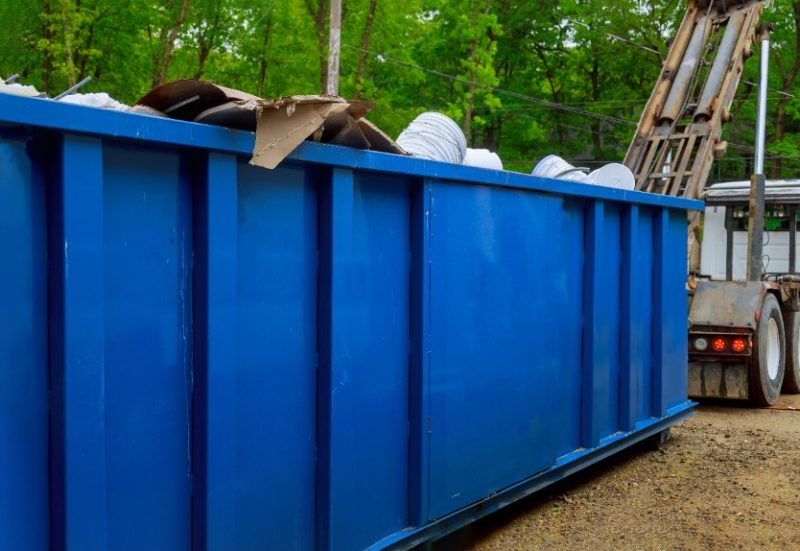Renting a dumpster is an ideal and cost-effective waste management solution if you want to dispose of a lot of garbage or you ever find yourself on a cleaning spree. With a dumpster, you can throw a larger quantity of the trash that your local garbage collector cannot handle. However, it also comes with restrictions on what you can and cannot put on the dumpster. This article gives an ultimate guide on what you can put in a dumpster and what steps you should take when renting the container.
- Wooden Furniture
Almost all types of furniture including tables, chairs, and couches are accepted in dumpsters. However, some landfills in certain locations do not allow mattresses and upholstered furniture and if they do, they charge additional fees based on your local area’s regulations. The best way is to contact the dumpster rental company if you are not sure whether certain furniture items can be thrown in the container.

- Household Junk
Any non-hazardous household junk can be placed in a dumpster. The term ‘hazardous’ household junk is defined by EPA as any waste product that has the potential to catch fire, explode, or react to the surroundings under certain circumstances. They can also be described as toxic or corrosive. A few examples of non-hazardous household wastes include regular trash, furniture, and other organic waste.
- Yard Waste
It is okay to throw junk from nature such as fallen leaves, sticks, storm debris, branches, and any other environmental flotsam. Many homeowners find dumpster rentals useful after heavy downpours since the strong winds and storms can create a huge mess in your home environment. Some dumpster rentals can limit the amount of green waste you throw in the container while others do not have limits.
- Appliances
A majority of general household appliances such as AC units, refrigerators, washers, and dryers can be thrown in a dumpster. However, it is mandatory to remove any hazardous fluids and components such as Freon from these items before you can dispose of them. It is advisable to seek the help of a professional when you want to throw away a Freon-containing appliance, as they know how to remove them.
- Construction Debris
Asphalt, brick, concrete, and stone are considered construction debris and they are okay to throw in a dumpster. However, due to their heavy weight, some dumpster rental companies recommend specific containers that are designated for heavy materials. Other construction debris like asphalt roofing shingles can also be thrown in a dumpster.
- Renovation Debris
Drywall, siding, wooden materials, and other demolition debris can go into a dumpster. Since they are also classified under heavy debris, most of the dumpsters designated for such do come with weight limits. Going over the recommended weight limit included in your quoted price has its consequences. You will be required to either pay overage fees or remove the additional weight.
- Household Electronics
Most dumpster rentals allow you to dispose of individual household electronics but with certain restrictions. For instance, if you have a large number of electronics or cleaning out an office full of electronics, then you will be required to recycle them as e-waste. Instead of sending them to a landfill, they can be refurbished for another useful cycle.
Factors to Consider When Renting a Dumpster
There are many factors to consider when renting a dumpster. First, you must determine what size you need as it determines the overall price you pay for the rental. The size you need depends on the amount of trash or available drop-off location. It is also important to decide on how long you need the dumpster since the longer you stay with it the more it will cost. Another important consideration that we have discussed above is the type of waste you will be putting in the dumpster.
The types of waste can be categorized as solid waste, general waste, hazardous waste, or green waste. Hazardous items like gas tanks, batteries, and other items that have the potential to catch fire or cause harm to the environment may require a different approach to waste disposal, as they are not allowed in a dumpster. That said, the overall price of the dumpster rental might vary depending on the type of waste you intend to throw in the container.
Based on what we have discussed above, it is clear that most dumpster rentals do not allow the disposal of hazardous wastes. Not only does it attract heavy penalties on its way to the landfill but is also harmful to the environment. It is important to straighten out information with your dumpster rental company on what you can dispose of in their dumpster to avoid any inconvenience.

